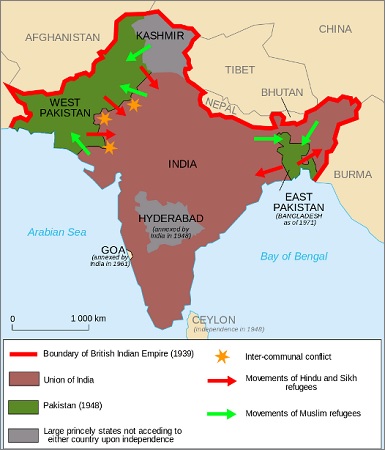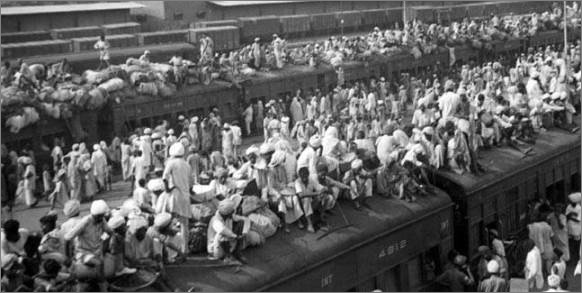India After Independence
by Devender
0 7060
India got its freedom from Britishers in 1947 but that brought a lot of challenges for India, the most bitter one among those was partition.
- Partition:
- Unification of all the states with different cultures, languages, and religions under one single nation
- Establishing a democracy
- To start policies that can end poverty and develop the country economically
- Food to feed the hungry people as most of the irrigated land was gone after partition
- Providing food and shelter to refugees from Pakistan
- Limitations of this report:
- Consequences of Partition:
- Women were killed by their own families to preserve their family honor
- Lahore, Calcutta, Amritsar, and other cities turned into communal zones
- This partition brought chaos that nobody could watch
- Around 5-10 lakh died in the violence related to the partition
- Around 80 lakh people had to migrate across borders
- The government set up a department of Rehabilitation with an aim to rehabilitate nearly 6 million refugees from Pakistan
- Various refugee camps were set up for the Hindus and Sikhs who were able to escape luckily from Pakistan
- Most of these people had nothing but clothes on their skin
- These lands were then used to resettle the refugees
- This resulted in a shortfall of approx. 8 million hectares of land in Punjab
- This shortfall was made more acute by the fact that the areas in the west of the province had richer soils, & was more abundantly irrigated
- The government gave each family of farmers 4 hectares irrespective of their landholdings in Pakistan
- The government also gave loans to these people for buying seeds and equipment
- The cultivation was provided on a temporary basis but applications were invited for permanent allotments
- The government was able to solve the problem of rehabilitation of Refugees from West Pakistan by 1952
- However, the rehabilitation on East took more time
- It was much more difficult because the constant exodus of Hindus from East Bengal continued for years.
Freedom came at a price which was the partition. It resulted in communal riots and violence on a large scale. During the first few years of Independence, India faced a lot of difficult challenges which were concerns for national unity and territorial integrity. These challenges were:
Partition: Displacement and Rehabilitation
On 14th-15th August 1947, two nations came into existence India and Pakistan with the "Two Nations Theory" favored by the Muslim League. Mountbatten then invited Radcliff to fix the boundary problem between India & Pakistan and decide their territory. He made two boundary commissions one for Bengal and the other for Punjab and gave his report on 17th August 1947.

Radcliff had no prior knowledge of India and he had no special talent for this kind of job. He didn't have any advisors or experts and the deadline of 6 weeks given to him was no good.
This partition brought the most abrupt, hazardous, and violent transfer of people in entire human history. People were being slaughtered and women were raped on both sides of the new borders.
A border strategy was made after 1947 for national consolidation which involved: Territorial integration, Mobilization of political and institutional resources, Economic development, and Adoption of policies to maintain law & order & to promote social justice.
Measures taken by Indian Government
This partition caused the greatest migration in human history and it resulted in the biggest land resettlement operation in the world. Refugees had to be found new homes and work so that they can live now.

However, a massive migration took place from Punjab too, Muslims from Punjab fled to Pakistan and left vacated lands.
If a person was found making false claims then they were met with severe punishments. A Rehabilitation Secretariat was set up in Jullundur headed by Sardar Tarlok Singh of Indian Civil Service to collect, collate, verify & act upon the claims.

Share:







Comments
Waiting for your comments